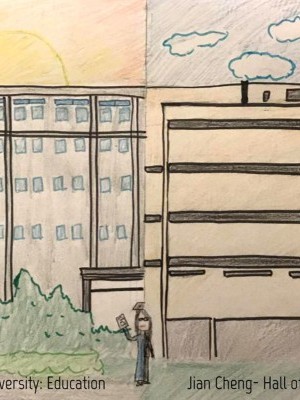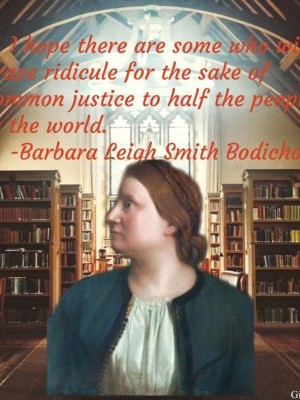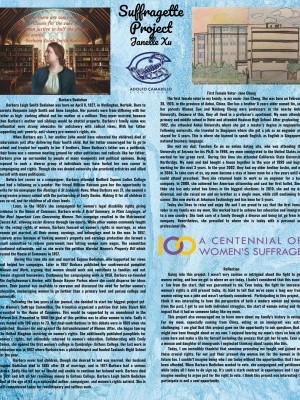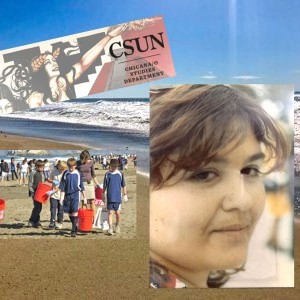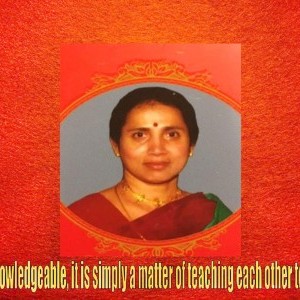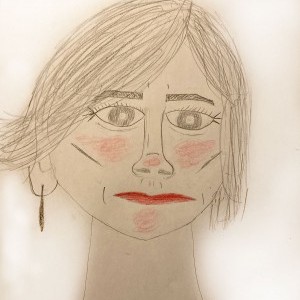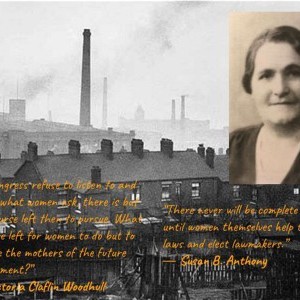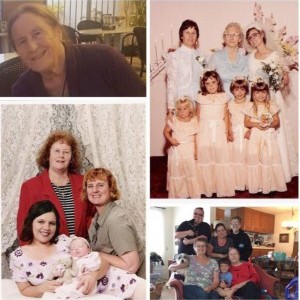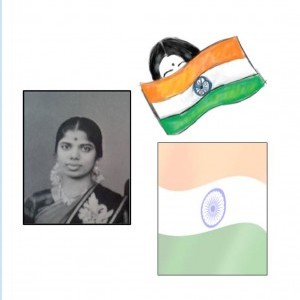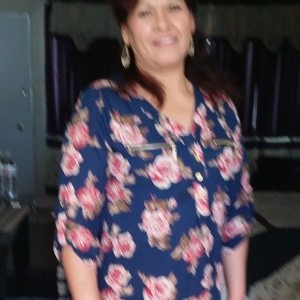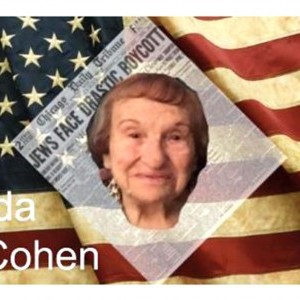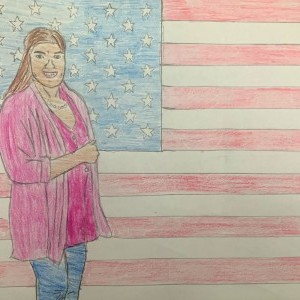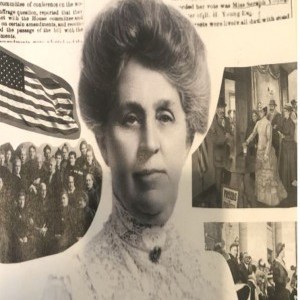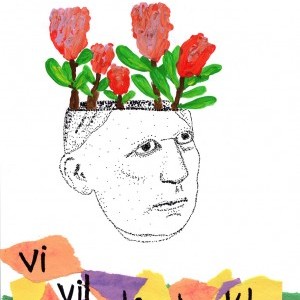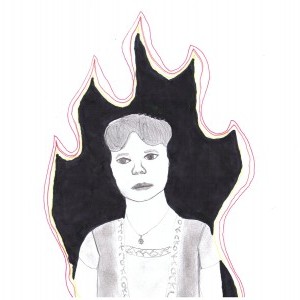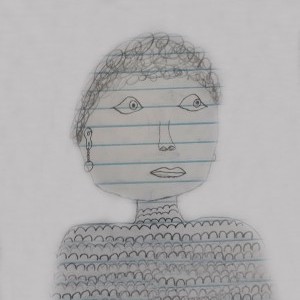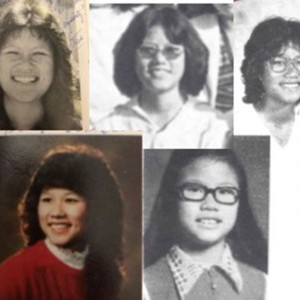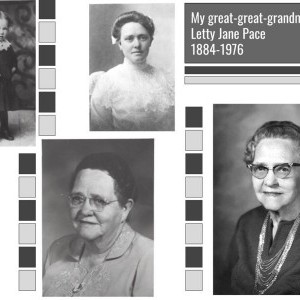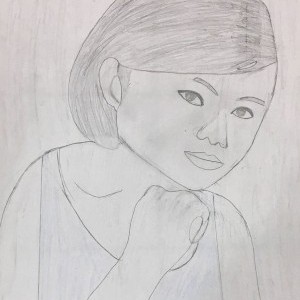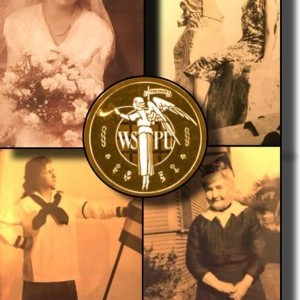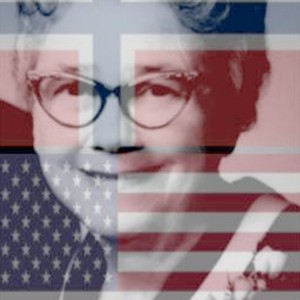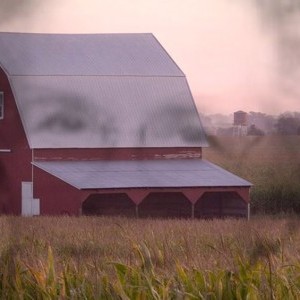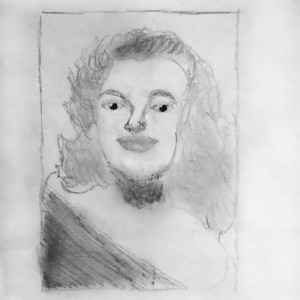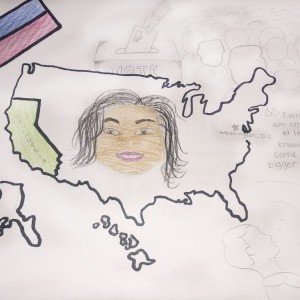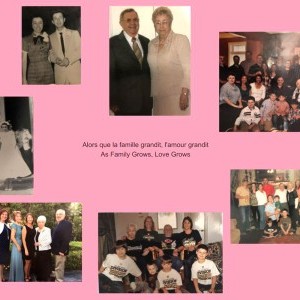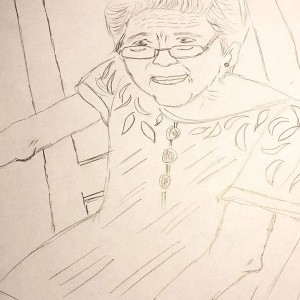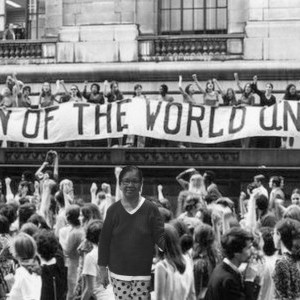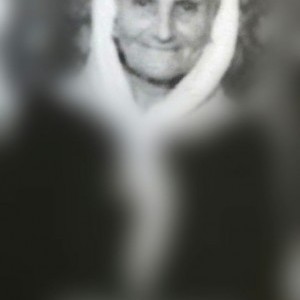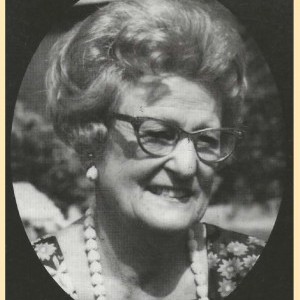Janelle Xu
Adolfo Camarillo High School | Camarillo, CA | 10th
Inspirational Family Member
Jane Chang
The first female voter in my family is my mom, Jian Cheng. She was born on February 28, 1970, in the province of Anhui, China. She has a brother eight years older named Jin, and her parents Minxue Guo and Naidong Cheng were professors at the nearby Anhui University. Because of this, they all lived in a professor’s apartment. My mom attended primary and middle school in Hefei and attended Huainan High School. After graduating in 1992, she attended Anhui University where she got a master’s degree in engineering. Following university, she traveled to Singapore where she got a job as an engineer and stayed for four years. This is where she learned to speak English, as English is Singapore’s national business language.
She met my dad, Yanzhen Xu, on an online dating site, who was attending the University of Arizona for his Ph.D. In 1998, my mom immigrated to the United States and worked for her green card. During this time she attended California State University, Northridge. My mom and dad bought a house together in the year of 1999 and began working for the next three years. In the year 2002, they had my older brother Justin, and me in 2004. To take care of us, my mom became a stay-at-home mom for a few years until we could attend preschool. Then she returned back to work as an engineer for a tech company. In 2008, she achieved her American citizenship and cast her first ballot. Since then she has only voted two times in the biggest elections. In 2010, she and my dad divorced, and she raised me and my brother as a single mom, while still continuing her career. She now works at Johansen Technology and has for 5 years.
Today she likes to relax and enjoy life and I am proud to say that the first female voter in my family was my mom. She worked hard to achieve her education and immigrate to a new country. She took care of a family through a divorce and being let go from her company. Nevertheless, she prevailed to where she is today with a personal and professional life.
Historical Figure I Admire
Barbara Bodichon
Barbara Leigh Smith Bodichon was born on April 8, 1827, in Watlington, Norfolk. Born to parents Benjamin Leigh Smith and Anne Longden. Her parents were from differing classes with her father as high-ranking official and her mother as a milliner. They never married, because then Barbara’s mother and siblings would be chattel property. Barbara’s family name was influential as they were strong advocates for antislavery with radical views, with her father supporting anti-poverty, anti-slavery pro-women’s rights, etc.
When Barbara was seven, her mother (who would have educated the children) died of tuberculosis just after delivering their fourth child. But her father encouraged her to go to school and treated her equally to her four brothers. Since Barbara’s father was a politician, their home was a common meeting ground for other politicians and radicals like her father. Barbara grew up surrounded by people of many viewpoints and political opinions. Being exposed to such a diverse group of individuals may have fueled her own career in campaigning for rights. Though she was denied university, she practiced artistries and allied herself with many politicians.
Before her career as a campaigner, Barbara attended Bedford Square Ladies College and had a following as a painter. Her friend William Ransom gave her the opportunity to write for his newspaper the Hastings & St Leonards News. When Barbara was 21, she opened a progressive primary school with the partnership of Emily Davies. Making it for all children it was co-ed, and for children of all class levels. Later, in the 1850s, she campaigned for women’s legal disability rights giving evidence to the House of Commons. Barbara wrote A Brief Summary, in Plain Language, of the Most Important Laws Concerning Women. This campaign resulted in the Matrimonial Causes Act, allowing easier divorce through law courts.
While other women commonly fought for the voting rights of women, Barbara focused on women’s rights in marriage, as when women got married, all their money, earnings, and belongings went to the man. In 1857, she formed a small committee to reform government laws letting women earn wages. The committee continued nationwide, and so she wrote the petition Married Women's Property Bill which passed the House of Commons in 1857. During this time she met and married Eugene Bodichon, who supported her views and helped her campaigns. Later in 1857 Barbara published her controversial pamphlet Women and Work, arguing that women should work and contribute to families and not remain stagnant housewives. Continuing her campaigning work in 1858, Barbara co-founded The Englishwoman's Review with Bessie Rayner Parkes where she could disperse her ideas more. Their journal was available to everyone and discussed the need for further women’s education, encouraging women to go further than a primary level and pursue college and university.
Following the two years of her journal, she decided to start her biggest project yet- the Women’s Suffrage Committee. The franchise organized a petition that John Stuart Mill presented to the House of Commons. This would be supported by an amendment in the Reform Act. Presented in 1866, the goal of this petition was to allow women to vote. Sadly it was denied with 196 votes to 73. Her final contributions to this debate were in 1869 when she published Reasons for and against the Enfranchisement of Women. After, she began touring the United Kingdom lecturing on women’s rights. She additionally published pamphlets for women’s rights, but ultimately returned to women’s education. Collaborating with Emily Davies, she opened the first women’s college in Cambridge- Girtons College. Her last work in education was in 1882 where Barbara was a philanthropist and funded Scalands Night School for the Poor.
Barbara never had children, though she desired to and was married. Her husband Eugene Bodichon died in 1885 after twenty-eight years of marriage, and in 1877 Barbara had a serious stroke. Sadly this left her an invalid and unable to continue her beloved work. Barbara died in 1891 and left all her remaining money to Girtons College. Barbara Leigh Smith Bodichon died at the age of 64 as a successful author, campaigner, and women’s rights activist. She is still remembered today for revolutionary and selfless work.
What the Project Means to Me
Going into this project, I wasn’t very curious or intrigued about the fight to get women voting, and how we got to where we are today. I hadn’t considered that this wasn’t a law from the start since it was always guaranteed to me. Even today, with the fight for increased women’s rights still present today, it’s hard to tell that we’ve come a long way from a time when women voting was a joke and wasn’t seriously considered. Participating in this project, I think it was interesting to have the perspective of both a modern woman and woman from the past. I got to see both individual struggles, the start of women voting and the impact that it had on someone today like my mom.
This project also encouraged me to learn more about my family’s history in voting. For my mom, especially coming from China, voting as an immigrant was extra challenging. I am glad that this project gave me the opportunity to ask questions that I might not have thought about on my own. I enjoyed hearing my mom’s story on how she came here and made a life for herself including the process that got her to vote. Even as a woman and daughter of immigrants I neglected thinking about topics like this.
Today, I am incredibly thankful that someone preceding me fought and gained me these crucial rights. For not just present-day women but for the women in the future too. I couldn’t imagine being who I am today without the opportunities that I have been afforded. When Barbara Bodichon wanted to vote, she campaigned and petitioned, while today all I have to do is sign up. It’s such a stark contract in experiences and I can’t imagine needing to argue just for the right to vote. I think this project was interesting to participate in and a cool opportunity.
Explore the Archive
More From This Class
Click on the thumbnails below to view each student's work.Deadline Extended
There's still time to join Women Leading the Way.
Become a part of our storytelling archive. Enroll your class today.
Join the Project

